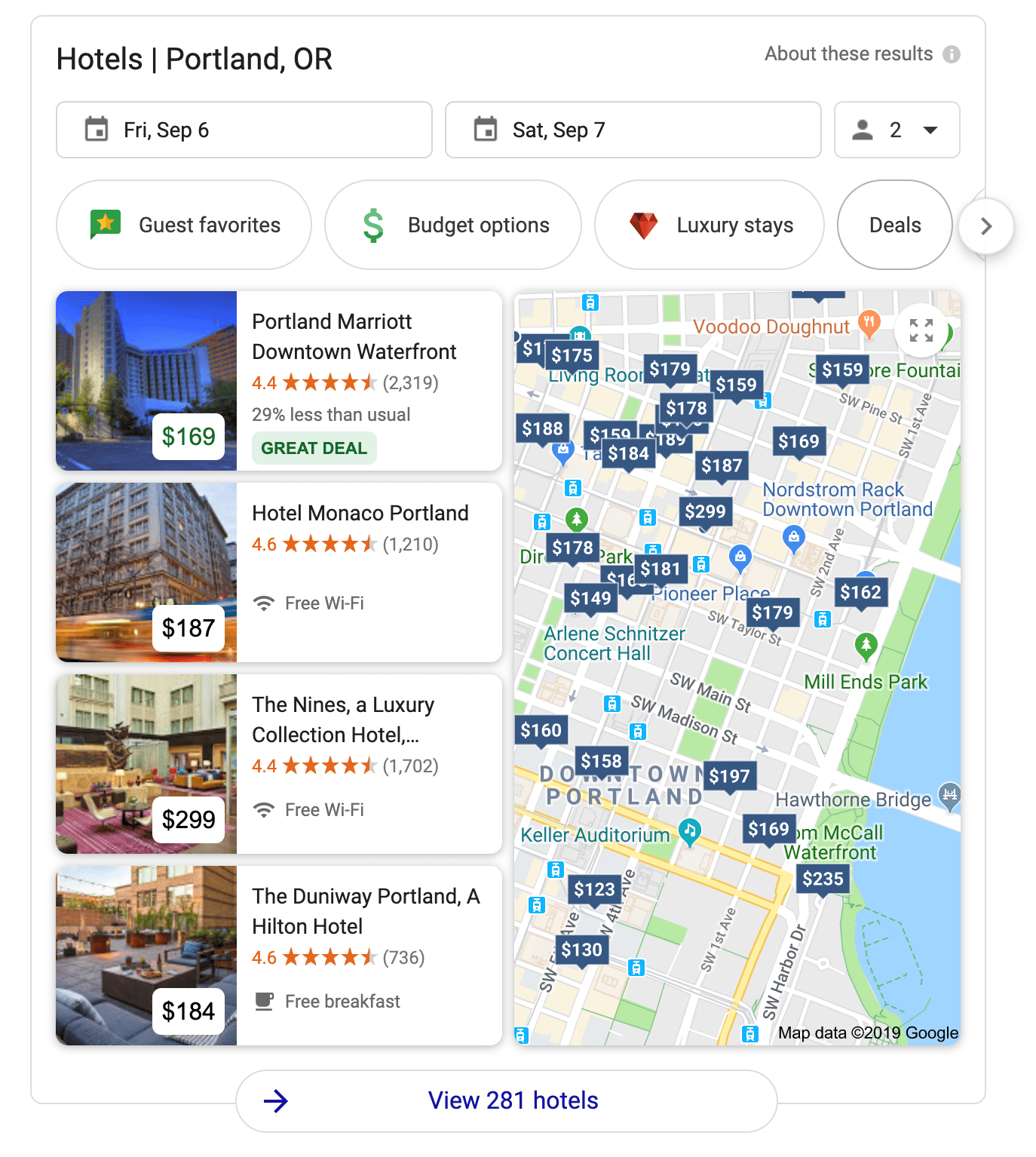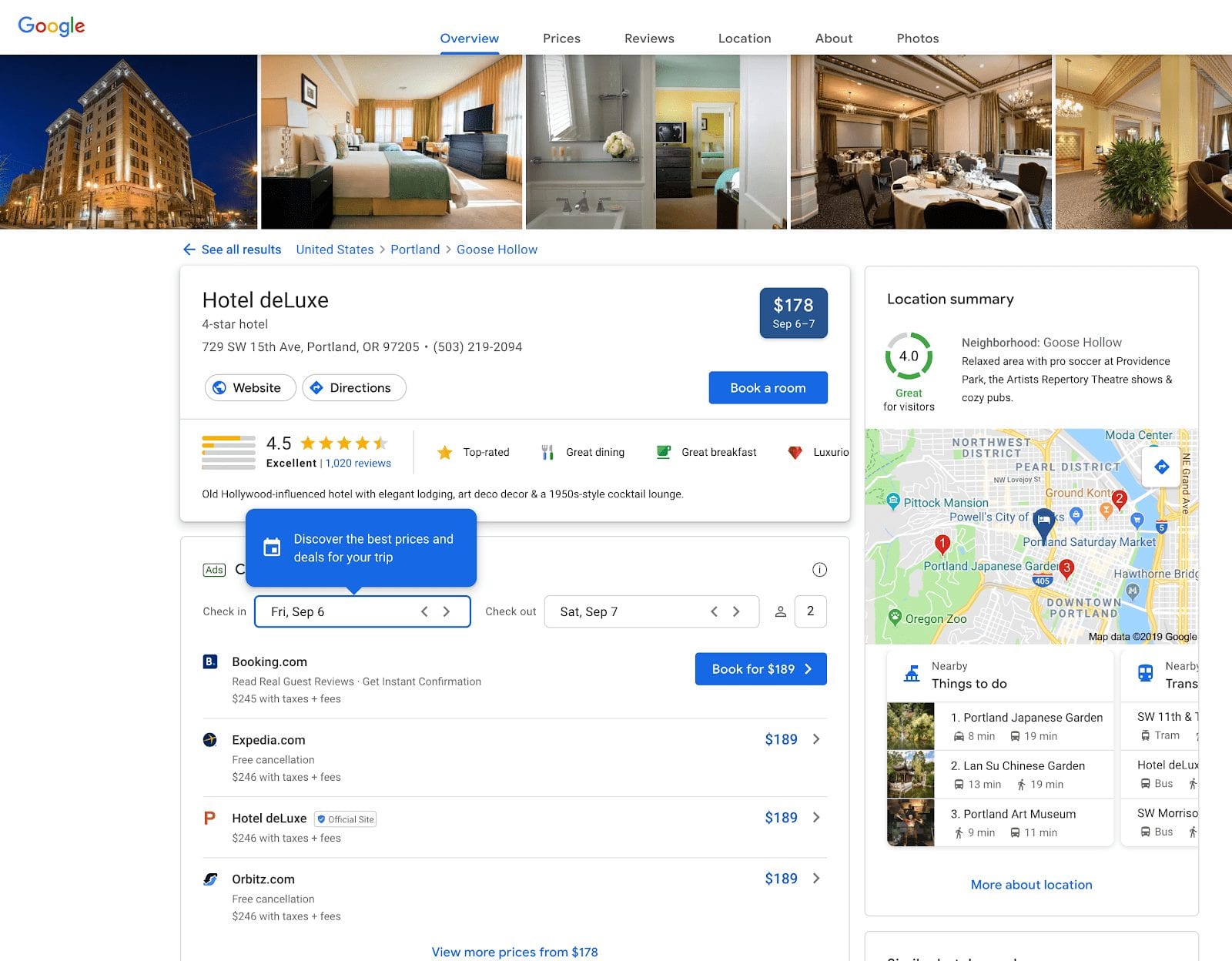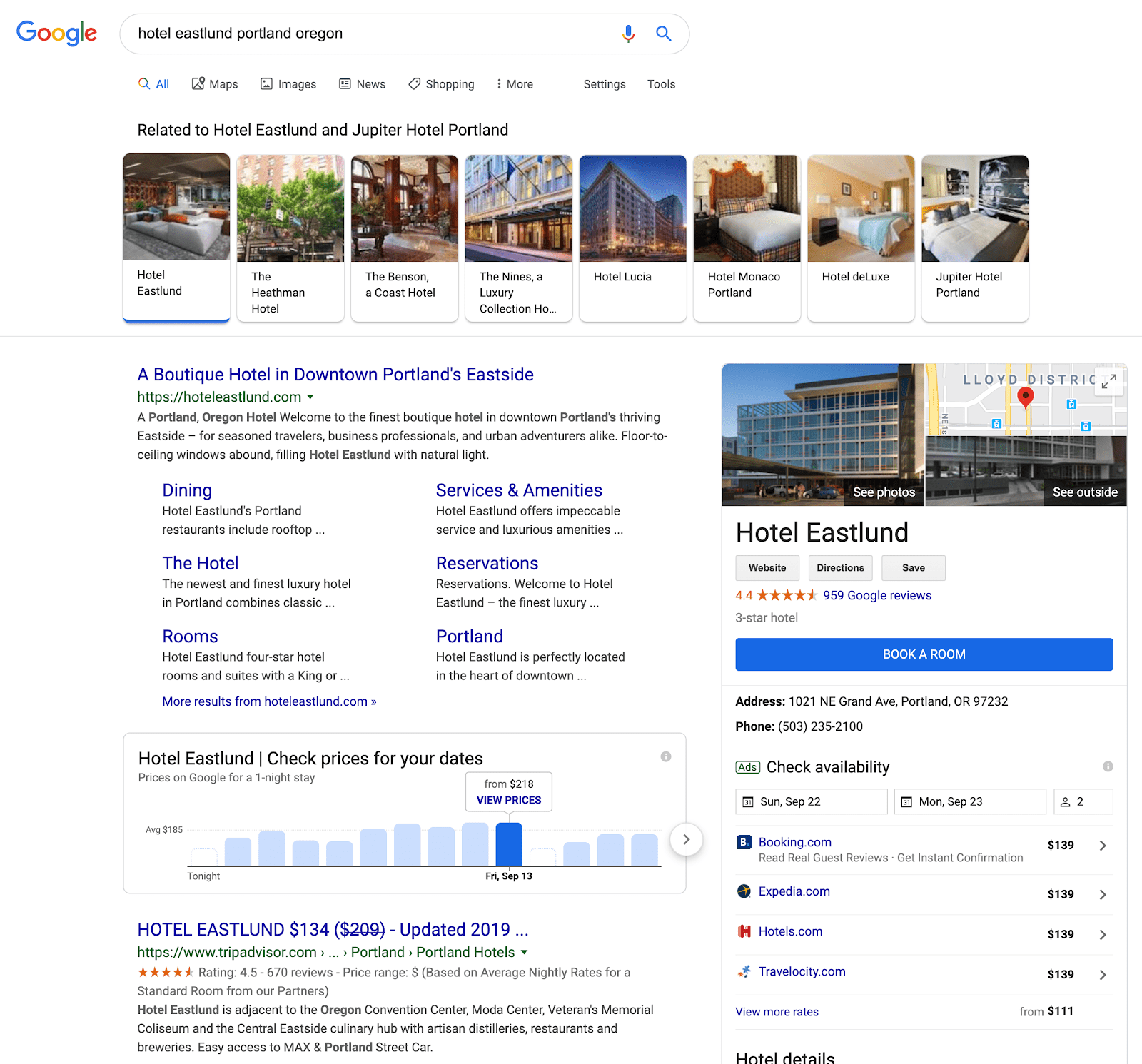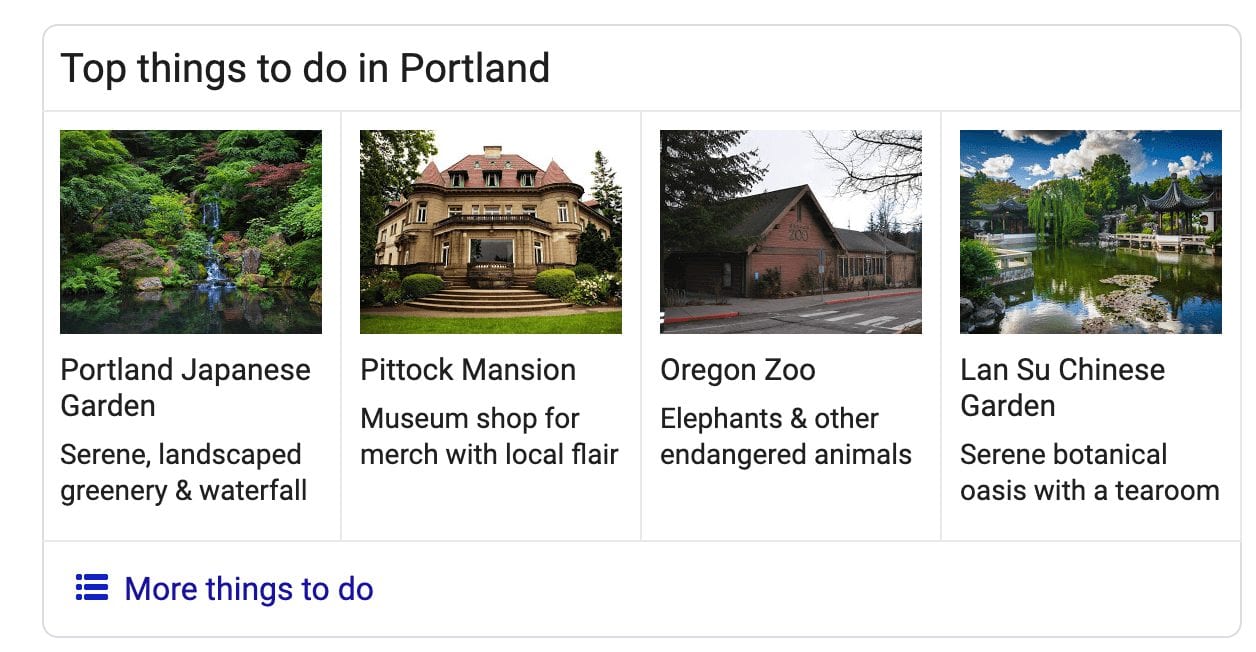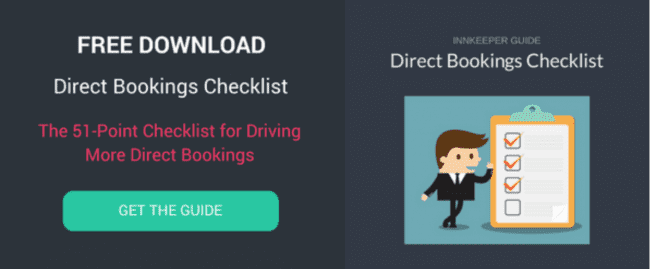A growing challenge for businesses is the evolution of Google search results and the trend towards “Zero-Click” searches. Users are absolutely still using Google to search for hotels and travel destination information, but a growing majority of these searches do not result in a click-through to a website. This trend is troubling and difficult for hospitality and marketing professionals to grapple with. This new and emerging issue has some implications for the long-term role of property websites, search engine optimization, and the adjustments properties can make to their marketing strategy in this new reality.
Rand Fishkin, CEO of SparkToro recently put together a blog post titled “Less than Half of Google Searches Now Result in a Click” where he examined this trend. I chatted with Rand on my InnSpeak Podcast to discuss his post, the impact on businesses across the Web, and how marketers, innkeepers & hoteliers can adjust their approach.
Listen to the discussion:
I Don’t Get It - What Are Zero-Click Searches?
"The percent of searches available as organic traffic from Google is steadily declining, especially on mobile." -Rand Fishkin, CEO of SparkToro
We have noticed a few trends with customer sites over the last couple years that reflect this observation. I brought up an example on the podcast which is illustrative of the trend.
Consider this screenshot from a property's Google Search Console account. I'm looking at year-over-year data for searches of the property's name and clicks to their website.
Translation: the property name has been searched for in Google (impressions) more often in 2019, but gotten fewer clicks from Google in 2019.
Why? Great question. This property still ranks #1 in Google for their own property name, they haven’t changed anything substantial about their website, their OTA programs, their association listings, etc. The ‘impressions’ metric implies that the demand for their property has increased. So why are they getting less clicks to their website?
NOTE: Granted, mine is a single example and not a broad reaching study, but I’ve seen this same thing several times for other properties and Rand’s blog post and the data that goes along with it supports my anecdotal findings.
Why Are Zero-Click Searches Happening?
A few things have happened over the last couple of years that have changed the game. Google is giving people less reasons to click through to websites.
Google Hotel Search
The “above the fold” real estate on the results page is dedicated to keyword ads (not shown) and Google’s own content (map/hotel finder results) which leads to more ads in the form of "book a room" hotel ads.
Nearly a year ago, Google made a big change to search results for accommodations. The map results on the search results page for something like “portland oregon hotels” now includes up to 4 ads (not shown), 4 property listings in the map and a full-featured hotel search that incorporates filters for amenities, rates & availability, ratings, etc. This data is supplied by your property’s listing in Google My Business along with data from OTAs like Expedia and/or your own rate & availability feed from programs like Google Hotel Ads by Odysys.
At the same time, the opportunities to gain a click from Google to a website have been diminished.
Competition for Your Property Name
And as I showed with my click data above, it is even difficult to get a click for your own property name.
In other words: Google makes money while making it harder for you to get a click to your website.
Answers to Questions from Google
Google ‘knowledge panels’ for your property will provide answers to most questions. A guest may be looking for your location, phone number, or availability. Google is answering some of the most common questions about your property. The searcher doesn't have to visit your website to get those answers.
Heck - anybody on the internet can ask and answer questions about your property in Google and they never have to even go to your website. See post: https://odysys.com/blog/what-bbs-and-hotels-need-to-know-about-googles-qa-feature/
Rich Results
Google’s own content for things like “things to do”, youtube videos, etc. As a result, even if you click on something, you’re staying on a Google website. It’s pretty tough to outrank Google.
What Can We Do if Google is Sending Us Less Traffic?
Build a Brand
As Rand mentioned in the podcast, our industry has been used to doing “last click” types of marketing. IE - the kinds of marketing and advertising where people book directly after clicking on your stuff. Given this new era with Google, what can you do? How can innkeepers be successful.
“You don’t want people searching “Portland Hotels.” You want people looking specifically for YOUR hotel. Even if Google is ranking their stuff first, you are eventually going to get that booking. That person wants to book your hotel.” -Rand Fishkin
Looking ahead, marketers must look to diversify your traffic sources and get more people to search for your property. Build a brand. If you get more people searching for your property name you’ll be able to get those bookings.
The Shifting Role of Your Website and SEO
Yes websites and SEO are still important. However, a website’s role in the traveler’s journey to making a booking is evolving. The impression I get in talking to most innkeepers is the expectation that “if you build it, they will come.” Just having a website with optimized content does not do the trick anymore. Building a bloated website with way too much content “because Google wants it” doesn’t do it either. Creating content for purely for Google’s sake is not the way to go about it.
Your website’s role is to engage those potential guests at the right times and get them to want to stay with you. Know your ideal guest. Create a website experience that speaks to them with the right pictures and content that answers their questions and inspires them to stay with you.
Adjust Your Marketing
“It's never been more important to diversify your traffic sources and invest in growing your brand's loyal, engaged community vs. purely investing in keyword rankings.” - Rand Fishkin
We agree! That is why we advocate for not solely relying on Google organic results to deliver your website bookings:
- Email Newsletter Marketing: As Rand states, “nobody gets between you and your email list.” Opt-in website visitors and guests. Use your newsletter to promote your destination and your property. https://odysys.com/blog/email-newsletters-missing-ingredient-marketing/
- Optimize the search results for your property’s name: As Rand states “Your new home page is your [property’s] Google results page.” We’ve got a great blog post about this “4 Ways to Make Your Branded Search Results Superb.” See also: 5 Simple Steps to Success with Google Hotel Search
- Google Hotel Ads: Don't let OTA's be the only option to book in Google. Get bookings directly from Google results: See Google Hotel Ads by Odysys
- Participate in Associations: Part of the job of your CVB, your hotel & lodging association, your B&B association etc is to market your destination and send interested guests to your website. We believe that live rates & availability on association sites are part of the recipe for success. (shameless plug for Odysys’ Book>Direct Everywhere product for associations)
- Get “out there” - links, listings & brand marketing: Someone searching for ‘Bend Oregon Hotel’ may click on one of the listing sites comparing all of the local accommodations in Bend, OR. Having your property on those lists is another way to get people looking specifically for your property. Check out: “How to Level-Up Your SEO with Links”
- OTAs: Expedia and Booking.com may be the bad guys in your eyes, but they also generate a ton of awareness for your property. The "Billboard Effect" is real and potential guests will turn to Google to find out more information about your property. Use them to your advantage with an OTA strategy instead of just letting them have all your availability.: https://odysys.com/blog/game-of-otas-2/
- Social Engagement: Promote your destination, promote your content and your specials, engage with people who share photos of your property and talk about their stay.
- Influencers, Events & PR: Building a brand requires awareness. Consider working with influencers, having events at your property, and generating publicity that will set your property apart.
What Happens in the Long Run? What is the Industry Doing?
There's definitely a movement out there to level the playing field with Google. In the podcast, Rand talks about efforts he's working on and how you can take action as well. This may mean anti-trust actions with Google etc. Definitely get involved, lean on your associations to help advocate for your industry. However, this isn't going to happen overnight. Google isn’t going to make it any easier to garner free traffic moving forward. Understand your ideal guest, build a brand that sets your property apart, and diversify your traffic sources.


